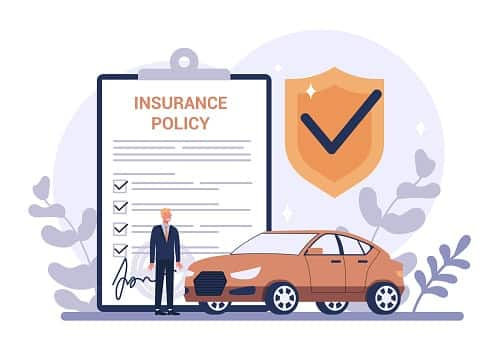What are driver’s license points and how do they work?
Most states have some form of driver violation point system. They’re designed to track problem drivers. Points are assigned when a driver gets a ticket or is convicted of a violation such as a DUI.
The number of points assigned depends on the severity of the violation. A speeding ticket will have a lower points value than reckless driving or a DUI.
Driver’s license points will eventually fall off your license, and as long as you don’t accrue too many in a short period of time, they don’t usually affect your driving privileges. However, if you get too many points on your license in a short time period, you can face license suspension.
Driver’s license points can and do affect your insurance rates, however. How the points system works varies from state to state, and the impact on your rates varies as well. Here are 10 things you need to know about driver’s license points.
1. Auto insurance companies have their own points systems
Both state motor vehicle departments and insurance companies use point systems to track your speeding tickets and other violations. However, they’re not the same system. DMV points are applied when you are convicted of certain traffic violations. If you accumulate too many points within a certain period of time, your license is typically suspended or revoked.
Insurers use their own points system to calculate rates. The company may have a proprietary points system or the system or follow guidelines set up by the Insurance Services Office (ISO). In some states, Minnesota and North Carolina, for example, state regulators set up the points system used by insurers.
Although the points systems are different, the same types of violations will affect both. If you have points on your license, odds are high the violation for which they were assigned will also affect insurance points.
2. Not all states use a driver’s license points system
Not all states use a points system, but all states track your driving record in some way.
The states don’t use a points system are:
In these states, you can still have your license suspended or revoked for having too many violations. It’s tracked, just not with points. And insurance companies will still look at your driving record to calculate your rates.
3. Too many points on your license can result in its suspension
Every state that uses a points system has a threshold for how many points you can have before the state decides your driving habits make you unsafe on the road and suspends your license.
In California, for example, your license will be suspended for six months, and you'll be on probation for a year if you get:
- 4 points in 12 months
- 6 points in 24 months
- 8 points in 36 months
4. A violation that doesn’t result in points can still affect insurance rates
In general, non-moving violations like parking tickets won't result in a points assessment, and they also don’t affect insurance rates.
However, in some states, there are offenses that don’t result in points, such as serious violations that result in an immediate suspension of your license. Even if points aren’t applied to your license, you will see an increase in your insurance rates.
5. Insurance points aren’t just for violations
Although most state DMVs assign points to a driver’s license only for tickets and other violations of the law, insurance companies cast a wider net.
You can earn insurance points for accidents on your record, even if those accidents didn’t result in any points on your driver’s license. A driver with a clean DMV record can still have multiple insurance points and pay more for coverage.
6. Points stay on your record for up to 10 years, depending on the violation and state laws
On average, you can expect points on your license to stay there for two to three years. However, there are situations where you might have points on your license for much longer (or sometimes a shorter period).
For example, in California, points for minor offenses remain on your record for three years, but DUI and hit-and-run points last for 10 years. In Nevada, points stay on your record for just a year, but major offenses, including DUI, result in automatic license suspension rather than points.
7. Some states assign license points even if you're not driving a car.
In Michigan, if you're convicted of DUI on a snowmobile or other off-road recreational vehicle, points can haunt your driving record. In other states, you can get points on your license for alcohol-related boating violations.
8. A seat belt ticket can be assigned points if children are in the car.
You won't typically get points if cited for failing to wear your seat belt, but in New York, if you are ticketed for having a child in the car under age 16 without a seat belt, the violation adds 3 points to your driving record.
9. A red-light camera ticket doesn’t carry points in some states.
Typically, if you get a ticket for running a red light, you also get driver's license points. But, in some states, you don't get points if a red-light camera catches you.
Other states tack on points for running red lights regardless of whether a camera or a cop busts you. For example, Arizona assesses two points for red-light tickets from either a camera or law enforcement. New Jersey, however, tacks on two points only if you get a traditional ticket from a police officer.
10. If you get a ticket, there are ways to avoid an insurance rate increase
While you will almost always pay more for insurance if you have points on your license, you can counteract that rate increase with a few tips.
- Shop around. Not every company weighs risk factors the same way, and not every company will increase your rates the same way for points on your license.
- Raise your deductible. A higher deductible means lower rates and can counteract the increase from a ticket. Make sure you can afford your deductible if you need to pay it.
- Ask about discounts. Even with points on your record, there are many discounts you can still qualify for. Ask your insurance company about savings, like bundling home and auto or a good student discount.
- Take a defensive driving course. Many insurance companies will lower your rates if you take a course to improve your driving skills.
- Consider usage-based insurance. Usage-based driving programs are an opportunity to prove you’re a good driver and can earn you a discount that will counteract the poor driving that resulted in points on your license.
Auto insurance FAQs
Can you get points removed from your license?
In some cases, you can get points removed from your license by going to traffic school. The rules vary from state to state, and you can usually only do this once in a specified time period.
You can also contest a ticket in court to avoid points on your license, but if you have already been convicted, you can’t get points removed this way.
How many points is a speeding ticket?
The number of points on your driver's license resulting from a speeding ticket depends on your state laws and how far over the speed limit you were traveling.
How much do points increase your insurance rates?
The rate increase resulting from tickets and driver’s license points depends on the type of violation. A speeding ticket causes an average increase of 20%, while a DUI will see a much larger increase, averaging 79%, based on 2022 Insurance.com rate data.






